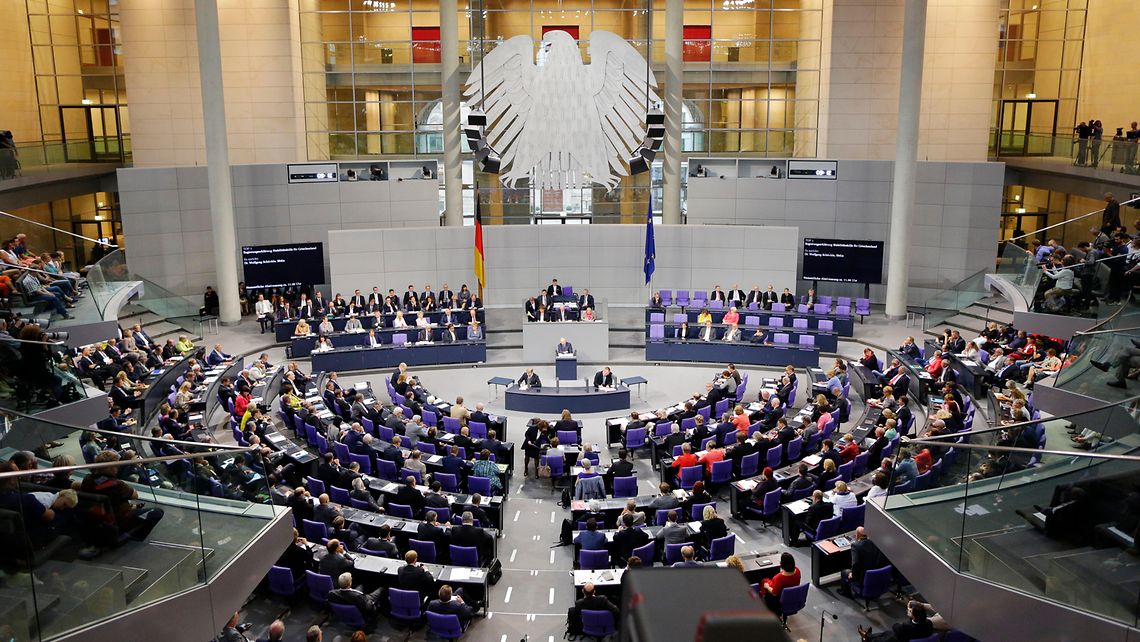Russia and Turkey are now considered to be the main power brokers in the Libyan conflict, according to Armin-Paulus Hampel, a former journalist and commentator who is currently a member of Germany’s parliament, the Bundestag.
“Turkey and Russia have de-facto already taken a leading role [in Libya], everything else was a verbal reaction,” RIA Novosti quoted Hampel as saying on Tuesday following Libyan peace talks that were held in Berlin last weekend. “On the other hand, you need to clearly understand that the directly involved parties, in fact, both parties - Prime Minister Sarraj and General Haftar - did not meet on the sidelines of the conference.”
Sunday’s meeting brought together backers of the main warring factions in Libya, namely the Libyan National Army (LNA) led by General Khalifa Haftar and the United Nations-backed Government of National Accord (GNA), led by Fayez Mustafa al-Sarraj. Also included were officials from Egypt, France, Italy, Russia, Turkey, the United Kingdom and the United States.
The conflict in Libya began in the spring of 2011 with mass protests and uprisings that contributed to the Arab Spring and eventually culminated in the capture and killing of longtime Libyan ruler Muammar Gaddafi, who had been in power since 1969.
But a new conflict between the two parallel governments, the LNA and GNA, has been escalating since April of last year, when the LNA launched a military operation to take control of the capital city of Tripoli.
Hampel called for “refraining from international participation” in the Libyan conflict, which is already burdened with “economic interests” coming from external players.
Following the meeting in Berlin, European powers agreed on a joint course of action to de-escalate the conflict.
However, a week earlier Russia hosted peace talks between Haftar and his rival Sarraj in Moscow. It was the first meeting since General Haftar launched his attack on Tripoli last April, which claimed the lives of more than 1,000 people and displaced nearly 120,000.
Following the talks held on January 12, which lasted about eight hours, Libya’s warring leaders made some progress but failed to agree on an open-ended ceasefire to end a nine-month war over the capital Tripoli. The GNA government in Tripoli, led by Fayez Mustafa al-Sarraj, agreed to a truce, but Haftar rejected the agreement and left Moscow, throwing open the door to a possible renewal of fighting and deeper foreign intervention.
Moscow backs the Libyan National Army led by General Haftar, while Ankara supports the United Nations-backed accord of Fayez al-Sarraj in Tripoli, with the Turkish parliament voting earlier this month to send troops to aid Sarraj.
Although the Russian and Turkish presidents back opposing sides in the Libyan conflict, both Vladimir Putin and Recep Tayyip Erdogan support a ceasefire.







 Armenian sappers commenced on Monday mine-clearance operations in the territories adjacent to the Saint Mary Church in village of Voskepar (Armenia...
Armenian sappers commenced on Monday mine-clearance operations in the territories adjacent to the Saint Mary Church in village of Voskepar (Armenia...
 Russian Foreign Minister Sergei Lavrov has reasserted that Moscow has no intentions to stop the fighting in Ukraine, even if peace talks commence.
Russian Foreign Minister Sergei Lavrov has reasserted that Moscow has no intentions to stop the fighting in Ukraine, even if peace talks commence.
 Iran has refuted reports of alleged damage to Shimon Peres Negev Nuclear Research Centre located southeast of Dimona, Israel, during the recent air...
Iran has refuted reports of alleged damage to Shimon Peres Negev Nuclear Research Centre located southeast of Dimona, Israel, during the recent air...
 Iran’s Foreign Minister, Hossein Amir-Abdollahian, has labeled a foiled Israeli drone attack in certain parts of the country as a "failure" for Isr...
Iran’s Foreign Minister, Hossein Amir-Abdollahian, has labeled a foiled Israeli drone attack in certain parts of the country as a "failure" for Isr...



